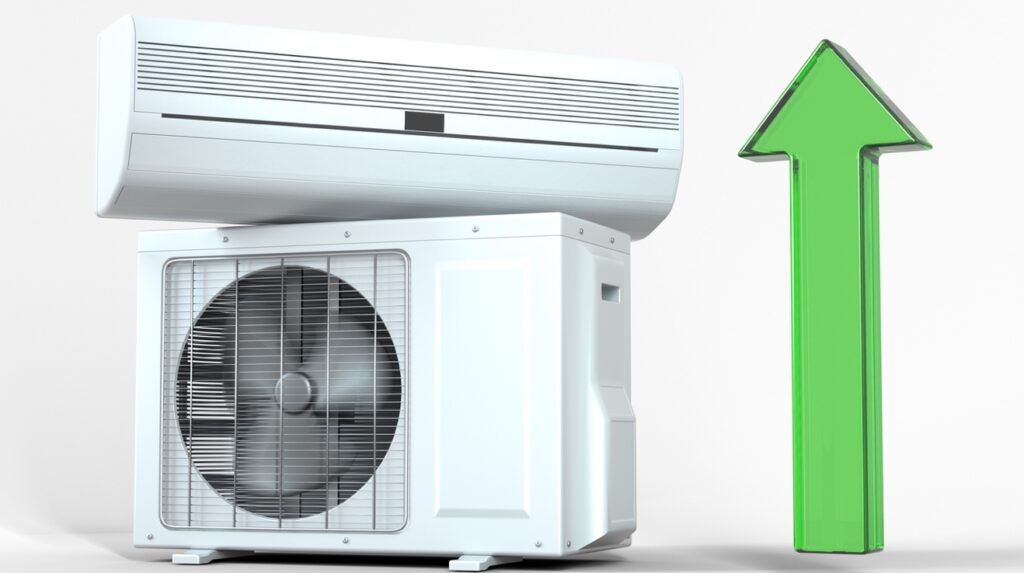
Your HVAC system uses more than half of your energy, contributing massively to your carbon footprint. At the same time, it’s essential to your health and comfort and, with the right filters, can even reduce how often you get sick.
Because of this, if you want to reduce your carbon footprint, one of the biggest things you can do is improve your HVAC system. Here are some upgrades that will help you use less energy (and save you money too).
If your HVAC system is more than a few years old, it’s likely to be pretty inefficient. HVAC systems have been made more and more efficient, especially over the last few years. Because of this, upgrading can save you money and significantly reduce your carbon footprint. Look for systems with high Seasonal Energy Efficiency Ratio (SEER) ratings for air conditioners and Annual Fuel Utilization Efficiency (AFUE) for furnaces.
Ask your installer for advice on upgrading and also on rightsizing your HVAC system so it’s providing the right amount of heating and cooling for your home and climate.
Modern programmable thermostats can make a huge difference. You can set them to adjust the temperature up or down at times nobody is in the house, and to lower the heat at night (Avoid raising the air conditioner temperature at night as this can keep you from sleeping). Because they do it automatically, you aren’t going to forget and waste energy. Some smart thermostats also help you monitor humidity and outdoor temperature.
Work at home? With the installation of a zoning system, you can program the system to maintain a desired temperature while working in your office and adjust the temperature up or down in rest of the home.
A lot of homes have leaky ductwork. Schedule a duct inspection to look for leaks and then seal and insulate your ducts. A good HVAC supplier can do this for you pretty easily and it will typically pay for itself.
Insulating your ducts will also keep them from “sweating” in the summer, which can cause moisture and humidity issues, especially in your basement. It’s best to have a professional do this. Then make sure that furniture is not blocking your registers. Vacuum your registers regularly to remove dust buildup.
If you’ve decided to upgrade your HVAC, consider a variable speed or variable output system. Traditional HVAC systems operate at the same speed and cycle on and off as needed. Variable speed systems can slow down when the weather is favorable and then speed up if needed. Instead of your AC running periodically on a cool day, it will run steadily at a slower speed. They’re also quieter and tend to help improve indoor air quality. Most homes can be upgraded.
Talk to us about whether a variable speed HVAC system is right for you and your home.
Last, but far from least, consider powering with renewable systems. Solar panels are an excellent option for almost all homeowners. A solar system will typically pay for itself in 7 to 10 years. Some people choose to lease panels, which is cheaper up front. Solar panels can also increase the resale value of your home.
If you can’t afford solar panels, then find out if you can join an energy cooperative that allows you to purchase energy from renewable sources. This isn’t an option in all areas but allows you to purchase a share of the production of a solar or wind farm.
If your HVAC system is pushing up your carbon footprint, it may be time to upgrade. Contact Capital City Comfort Solutions to find a local HVAC supplier who can help you choose the right high efficiency or variable speed system for your home.
Your one-stop solution for total comfort:
heating, cooling, electrical, and air quality
Our Hours
Monday-Friday: 8 am – 5 pm
Saturday: 24/7 Emergency Service
Sunday: 24/7 Emergency Service

Serving the heating, cooling, electrical, and air quality needs of the greater Richmond area including Chesterfield, Midlothian, Mechanicsville, Short Pump, Powhatan, and Chester.
Fully Licensed and Insured State Registered Class A Contractor Class A 2705188124 HVA RBC GFC
Join our newsletter
©2024 Capital City Heating and Cooling | Performing HVAC Services in Midlothian, VA | 804-449-7053